- Home
- Helen Dunmore
Zennor in Darkness Page 3
Zennor in Darkness Read online
Page 3
‘No. I must not think of the children.’ It is dangerous to think of the children. It is like Lorenzo thinking of the war. The children ran from her. They ran from her when their governess said, ‘Run, children! Run!’ They saw their mother and they ran. She had come to meet them from school, and there they were with the governess. She heard their high, sweet voices, but she could not hear what they were saying. Barbara had a blue hat on, a new one which she had never seen. Then Frieda was stumbling towards her children with her arms open to seize them and hold them and breathe in the warm smell of their hair and their skin. But the governess had been told not to let the children see their mother, the wicked woman who had run away and left her husband and her children. She called out: ‘Run, children! Run!’ And the children ran. They did not know who I was, Frieda tells herself. They were frightened and they did not recognize me.
The light changes again as a fresh ripple of wind crosses the landscape. For a moment it looks like heaven. While it looks like this, nothing bad can happen. Let them fret and bluster with their boundaries and rules and prohibitions. Let them tamper with our mail and carry on with their surveillance which is so clumsy, so ponderous that it is comic. Surely it can never come to anything? We must continue to live as usual, to show that we have nothing to hide, that we are not afraid. These oafs of military police – they are just something one has to live with. Something decent people pretend to ignore.
Here, they are hundreds of miles from London’s tumour of officialdom. Here, it is nearly all sea. Little dots of people on rock, a huddle of grey farm buildings wherever the land folds in to make shelter for them, then miles and miles of sea, stretching sheer to America.
‘Aaah, how beautiful!’ she says, opening her white, powerful arms. She will make tea for them both, and then they will go for a walk. She turns her back on the window and starts to pull on her stockings. Her husband bends too, rasping his hoe through the bindweed he can never quite eradicate. Each fragment is capable of rooting itself, and forming a fresh stranglehold on his young plants. It is rank green bindweed with its coarse white flowers, not the little, scented mauve-striped convolvulus which grows along the cliff-path.
Another boat noses into sight, heading for the cliff-base. It looks like nothing from here, but it is full of living sharp-eyed men, doing their job. Only doing their duty. What a world this war has made, where everyone is doing his duty, or what he conceives to be his duty. There is a rumour of a German fuel-dump near here, tucked into one of the hollow, sea-echoing chambers along the coast, ready to feed the submarines. You could never search this whole coast. And the U-boats are prowling along this coastline, sinking ship after ship after ship on the Western Approaches, leaving the British authorities helpless and raging with the pent-up secret of their helplessness. U-boats prowl, bread queues breed, allotmenteers dig up the railway embankments. If there is no food, will there be revolution here too? What if the soldiers at the Front get letters from their dear ones at home saying: We are hungry. We are starving. You must help us.
She dresses, he digs. Neither sees the patrol-boat swing right in, balancing itself on the swell. It is taking advantage of the calm weather to come close under the cliffs, searching for evidence. Is there a patch of oil, or a place where someone might set a signal-light? The boat rocks while its crew look and listen. Their eyes rake the rocks. Nothing. But there must be something. It is four o’clock. The men out in the fields straighten as they see the girl reach the gate with a cloth-covered basket and a jug of cold tea. She will hand it over the gate to them, because she does not want the dung on her skirts. Meanwhile the postman toils seven miles uphill from St Ives, with the Berliner Tageblatt in his saddlebag.
Three
Six o’clock and the house is silent, as Clare opens the porch and stands still just inside the front door. Westerly light drips through stained glass on to her hair, through the languid figure of a craggy-jawed Pre-Raphaelite beauty. Her long green robes make green blobs on the black and white tiled floor. Clare runs a finger round the outline of a big, bare foot which peeks out of the draperies. She used to reach up and huff her breath on the toes to see them cloud. She used to think the figures were angels, not second-hand Lizzie Siddals.
‘Is that you, my darling?’
It is her father’s fond, light, abstracted voice.
‘Have you been out, Clare?’
She goes down the hall to her father’s room, which smells musty after the sunshine. The room is small and full of furniture: a brown, slender-legged bureau desk, two fat brown leather armchairs, a table, a dark crimson Turkey rug. The window is open to let out the smell of his cigar. He only smokes in this one room, out of consideration for her. A narrow-skulled Burmese cat turns and glares at her from the armchair opposite Francis Coyne.
‘Sheba,’ he croons reprovingly.
Maps are sprawled out, open, on the floor, the chair arm, the rosewood dining-table at which they never dine. Clare’s own sketchbooks are piled up on a corner of the table.
Francis Coyne is mapping the distribution of travelling plants in an area seven miles around St Ives. He is more interested in travelling species than in the close-rooted kind which has always been at home here, clinging to its habitat. Seeding by bird-droppings, accidental migrations in sailors’ knapsacks, carefully harvested pods and cuttings which survive, freakishly, half-way around the planet: these interest him. When Clare was a child, the only fairy stories he told her were the stories of plants: their places of birth and their uprootings, their adventures, adaptations and survivals. At six and seven and eight she had listened, fascinated; now she’s nearly twenty, and she has become impatient. Or perhaps she had never been patient, or even interested at all. She had drunk up attention, and even if it came to her filtered through a strange dialect of pedicels, racemes and bracts, she was capable of burrowing past the information to the cadences of her father’s voice, his smell, his light hands that never clasped her as tightly as she wanted. Now Francis Coyne is supposed to be writing a book, and Clare is supposed to be helping him. He is a self-taught botanist, an amateur, as he will admit to anyone who asks him. No expert. But it is his enthusiasm, gentlemanly and kept well within bonds.
‘Don’t pretend,’ says Clare. ‘You know I’ve been out. And it’s six o’clock. We went right up to Hayle and came back on the railway.’
His eyes gleam briefly, acknowledging that yes, he isn’t as absent-minded as all that. He has noticed her absence, but he preferred to go on fossicking among books and maps rather than realize the time and light the kitchen stove and think about what there was to eat. It was only what she’d known and expected.
‘You make tea while I wash,’ says Clare. ‘I’m all salt – look.’ She holds out her arm, and he peers. It’s true, there is a delicate rime of salt on her skin.
‘Been paddling?’ he asks.
‘Swimming.’
‘You must not take cold, Clare.’
He says it because he feels he should, but they both know that Clare chooses for herself.
‘Have you anything to show me?’
‘I didn’t take my sketchbook.’
Clare is the one who can draw. Her pencil sketches are delightful, her father thinks, firm, yet delicate, beautifully shaded. He has taught her which details she must include for botanical drawings. But she has not taken her sketchbook.
‘I’ll light the stove,’ he says with conscious generosity.
‘No, don’t do it yet. I’ll boil the kettle over the kitchen fire. I asked Hannah, but Uncle Arthur hasn’t any kerosene. There won’t be any until the middle of next week; Wednesday, Hannah thinks.’
‘Can we manage until then, with what we have?’
She shrugs. He doesn’t really want to know, so why does he ask? She will have to manage.
‘I shall finish this, then, while you get ready.’
And he relapses, book in his hand. She peers. It is some privately printed slender volume of poems. She hasn’t seen it
before. Surely he can’t have been spending money on books again? Well, she will say nothing now. The cat, pleased that Clare has gone, knocks lightly against Francis Coyne’s dangling hand. The hand curls and caresses the cat’s long spine, which pours away under his touch.
The whole golden evening arches over the bay as Clare goes upstairs. Her calf muscles ache from scrambling the dunes: she’d like to have a bath, but there isn’t enough fuel to heat the water. She pauses at the tiny landing window and looks out. They’re high up here, in one of the rows of new villas built twenty years ago, already well weathered by winters of storms. The houses have stone-cladded fronts and stained-glass panels in their porches, and little gardens which are no more than backyards. But the rooms are light and airy. Her father thinks the house hideous. He has lived there since the builder signed off in the plaster of the front sitting-room, and he and Clare’s mother were left to tiptoe around the raw newness of the house, planning its decoration.
Clare was two then, kept up in lodgings in London until the house was habitable. When she first came, she was frightened by the noise and the size of the sea. It was winter, and she thought their house would tumble down the hill and into the dark grey fighting waves. Her father would have preferred one of the whitewashed cottages down in the town, among narrow lanes and sudden astonishing views. But her mother wouldn’t think of it. Dirty, insanitary places, full of noise and drunkenness when the boats came in after a successful catch. She loathed her husband’s taste for the naïve and local. Dimly she felt that it insulted her by putting her firmly and gently within the category of the picturesque. She loathed the way he refused to know right from wrong. He could well afford to have such fancies, being what he was, coming from where he did; but she could not. She had left this town half trained as a maid by the minister’s wife, made bold by a frightened ambitiousness which she revealed to nobody. She would touch fine things, smell perfumes and silks, put out bon-bons in silver filigree dishes on walnut dressing-tables. She was to be polished. The scouring away of her had worked. She was not what she had been, and yet she wasn’t quite what she had been moving towards. She worked her way up to lady’s maid in a secluded terrace with its own railed gardens in Kensington, not far from Brompton Oratory. Her hands were perfect, broad, with cool, tapering fingers. She had a touch that would soothe anyone, and a gift for dressing hair so lightly and easily that her lady scarcely felt the pins going in. Just her lady to dress. No daughters. Engagements to luncheon, callers, concerts. A muddle of Kensington ladies fluttering from house to house for tea and soft, murmurous, complaining conversations.
A celibacy of servitude, almost classless, had begun to shroud Susannah Treveal. She came across Francis Coyne in the course of it, and had scarcely thought of him as a man, let alone as a man with a possible sexual interest in herself. After all, he came to tea with his mother. She had dressed his mother’s hair one afternoon, when Mrs Coyne had been struck down by migraine and had had to lie down upstairs in one of the cool bedrooms with wistaria tapping against the windows.
She was soon enlightened by the other staff. These Coynes were not as grand as you might think. They had the name, but Coyne Park was not what it sounded. All the land had been sold long ago to meet recusancy fines, and now there was just the place itself, with the Home Farm and a few cottages in the village of Coyne. Oh, the name might sound fine, but you wouldn’t catch Ethel or Ivy working there, away down in Somerset with nowhere to go but between blank green fields. And the Coynes always had too many sons. Francis was the third, and he was no more likely to inherit than a parakeet in a cage. The eldest son was married already with a long family in the nursery. Francis’s mother survived on this relation and that. He’d have a small income and he’d have to look like a gentleman on it. Wouldn’t you think he’d have the gumption to go into the army? And he couldn’t go into the Church. Pity, that. It was a useful place for younger sons.
‘Why not? Why can’t he?’ asked Susannah, seeing Francis suddenly in a pulpit, long hands laced as he looked over and down at the congregation.
‘They’re Romans. Didn’t you know? She’s always bobbing into the Oratory.’
‘Oh!’ squeaked Susannah, who had been named for the mother of all the Wesleys. This was worse than his lack of money.
Yet she felt for him. There was something about him. His long, finicking fingers: the general uselessness of him. He was a luxury item. He could make her laugh. He was light, he took nothing at its full value, she thought, not even the marriage which made her sweat and tremble at night beforehand. She said nothing to them at home. She kept dumb as a hare. Her wooden little letters didn’t cease, for fear they’d suspect. For nearly two months she traipsed to the presbytery of Holy Cross every Wednesday night, with Francis, to receive instruction. She couldn’t help it: the first time she set foot over the threshold she crossed her fingers behind her back, fearful that her sinning body would burst into spontaneous fire. She assented to every proposition put forward by the priest, who was kindly and tired and impatient of Francis’s love of argument. Before she knew it she had turned. They would be able to have a nuptial mass, though they had no one to ask – Francis’s family were horrified by the marriage, her own knew nothing of it, and Susannah had no friends but her fellow-servants. Francis had friends, young men who laughed too much, in her opinion. She imagined that these friends would come to an end, after their wedding.
She could avoid telling her family of her courtship but not of her marriage. It would not have been beyond her father to mount an assault upon London, in the pride of his foreignness and his honesty, should he suspect from her change of address that she had taken wrong ways. So the letter was written, and she closed off her mind to the rage and torment she could feel far down in that bony, jutting finger of land. They did not come to find her or fetch her. She wrote again when Clare was born, and received a present of a shawl from her mother, who had four huge virtuous sons and preferred girls. Susannah began her campaign to come home, away from Francis’s friends and the traffic and books and rare, terrifying visits to the Café Royale and the eddy of people who either believed in a god she could not believe in or in no god at all. Sometimes she suspected Francis of belonging to both these camps at once.
Besides, she’d become delicate since giving birth to Clare. She did not put on weight. She coughed, and her breath smelled. They would be better down in Cornwall, where living was cheap, the air was pure, and Francis could write his books, since this was what he wanted to do.
And they could get a fine new house with no damp in it, no insanitary passages, no bad drains, high up above the bay, triumphantly above the piggling streets where she’d lived as a child. He objected that there was no convent school for Clare, but surely he could teach her himself – with all he knew, what better arrangement could there be?
Two years after they moved, she was dead of phthisis. A hard and ugly way to die, but he had stuck to her right through it, paying for doctors, injections, special diets, Jaeger wool. He held bowls for her and changed her sheets after she woke at three o’clock, wet with a night-sweat. By the time she died she was almost convinced that he must have really loved her, and had not married her simply in order to carry out some mazy fantasy of his own or to get his mother off his back for ever.
She wouldn’t let the child come in her room. ‘Don’t let Clarey come near me. Send her downalong to Mum’s.’
The lady’s maid speech was nearly gone now: used up, like her breath. Clare went down to the insanitary cottages, and played by the harbour with her cousins and second cousins, and ran out to see the boats come in with the other children, getting in the way, getting yelled at, jeering at the blue lobsters which crawled over one another in their pots, insect-like, claws tied for the London market.
At home, the shut door. Father going in and out, smelling funny, and a doctor with legs like scissors as he got out of his trap. Covered bowls and buckets. And all night, whenever she woke, she could hear gargling
and coughing from the thing that was there, behind her mother’s door.
They all went to see her buried, a foreign and appalling experience for Susannah Treveal’s family. Francis had insisted that her requiem be said in the little chapel at Coyne. She was his wife, and she would lie among the wives of the Coynes. Besides, there was no Catholic church in St Ives yet, though the site for it in Street-an-Pol was bought in the year of Susannah’s death, and the Catholic community was growing fast. So there sat the row of Treveals, Nan and Grandad, Uncles Arthur and John and William and Stanley, their wives, their children. Not one of them had ever set foot in a Catholic church, nor had they thought ever to do so. They sat there upright and disbelieving as the coffin containing their child, their sister, was asperged and muttered over, and the censer was swung around it. It was a strange gathering of Methodists and Coynes and Francis’s atheist friends from London.
And look at him now, alone with black-drenched four-year-old Clare, at the chapel door. He did not quite look as a widower should, but Nan allowed for the pinch and tuck God had put into his lips, which made him look as if he were smiling slightly. All the Treveals had seen with their own eyes how he had looked after Susannah. And now he had this child to rear. Susannah’s brother Stan’s wife had no children, although they’d been wed for twelve years. It was a female trouble she had. She would take the child gladly and leave Francis free for his work. Clare would be in the same street as Nan and Grandad, and just a step away from her cousins, clattering off to school with them. It would get her out of that sickly house up the hill, full in the face of the gales. So the Treveals reasoned among themselves, and the idea grew and shimmered as it passed like a blown bubble from one family branch to the next. However, there seemed to be no right time to tell Francis of it. After the funeral he stayed at Coyne with the child for a week or so, while the Treveals went back home. They came to meet him at the station when he returned to St Ives, but he preferred to walk straight home with Clare. ‘She must get used to the house without her mother in it,’ he said to Nan.

 The Ingo Chronicles: Stormswept
The Ingo Chronicles: Stormswept The Deep
The Deep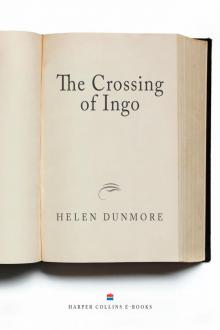 The Crossing of Ingo
The Crossing of Ingo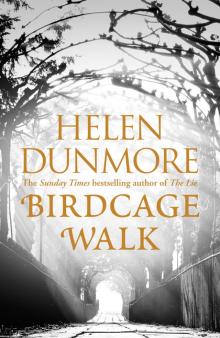 Birdcage Walk
Birdcage Walk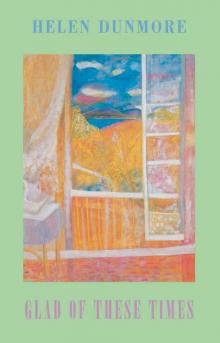 Glad of These Times
Glad of These Times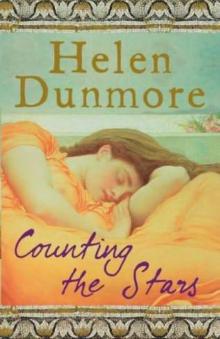 Counting the Stars
Counting the Stars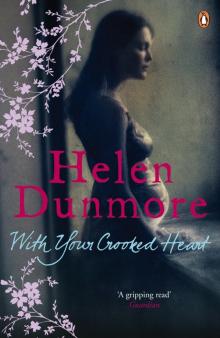 With Your Crooked Heart
With Your Crooked Heart Burning Bright
Burning Bright House of Orphans
House of Orphans Mourning Ruby
Mourning Ruby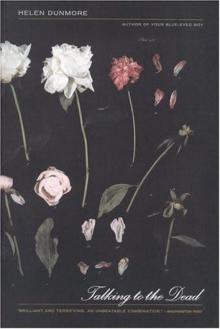 Talking to the Dead
Talking to the Dead Exposure
Exposure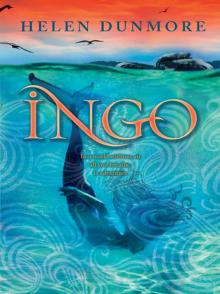 Ingo
Ingo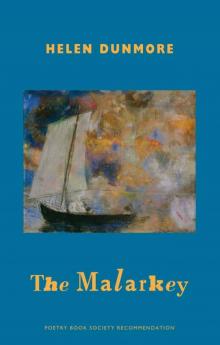 The Malarkey
The Malarkey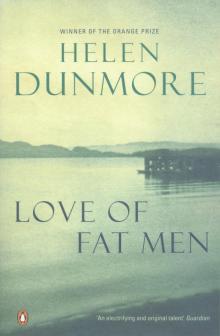 Love of Fat Men
Love of Fat Men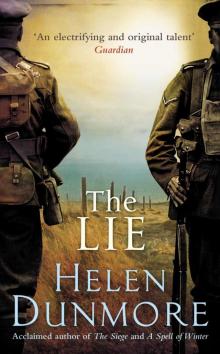 The Lie
The Lie The Siege
The Siege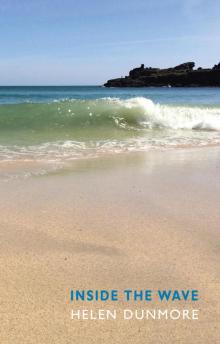 Inside the Wave
Inside the Wave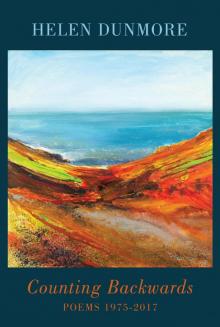 Counting Backwards
Counting Backwards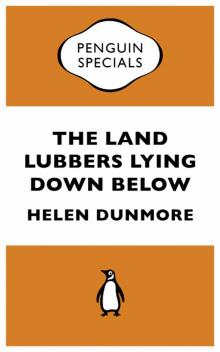 The Land Lubbers Lying Down Below (Penguin Specials)
The Land Lubbers Lying Down Below (Penguin Specials)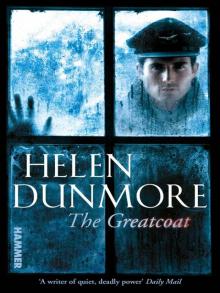 The Greatcoat
The Greatcoat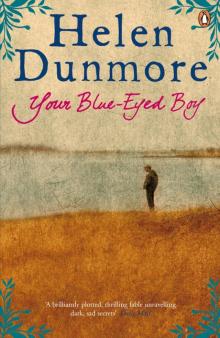 Your Blue Eyed Boy
Your Blue Eyed Boy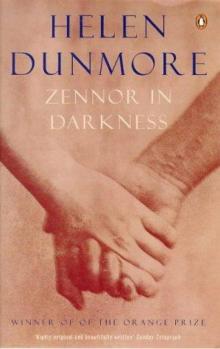 Zennor in Darkness
Zennor in Darkness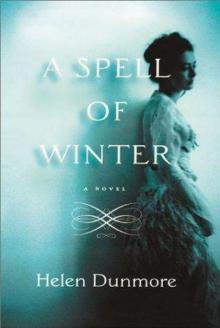 Spell of Winter
Spell of Winter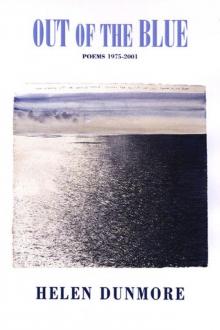 Out of the Blue: Poems 1975-2001
Out of the Blue: Poems 1975-2001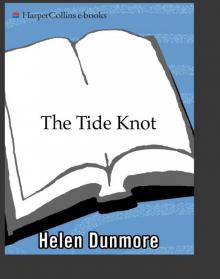 Tide Knot
Tide Knot The Betrayal
The Betrayal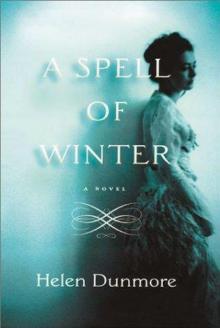 A Spell of Winter
A Spell of Winter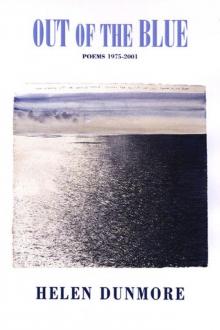 Out of the Blue
Out of the Blue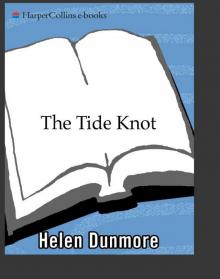 The Tide Knot
The Tide Knot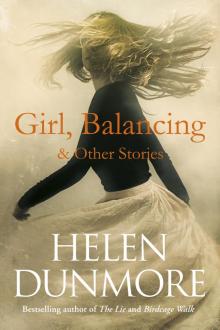 Girl, Balancing & Other Stories
Girl, Balancing & Other Stories Betrayal
Betrayal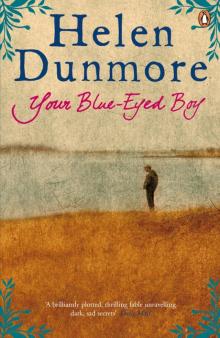 Your Blue-Eyed Boy
Your Blue-Eyed Boy